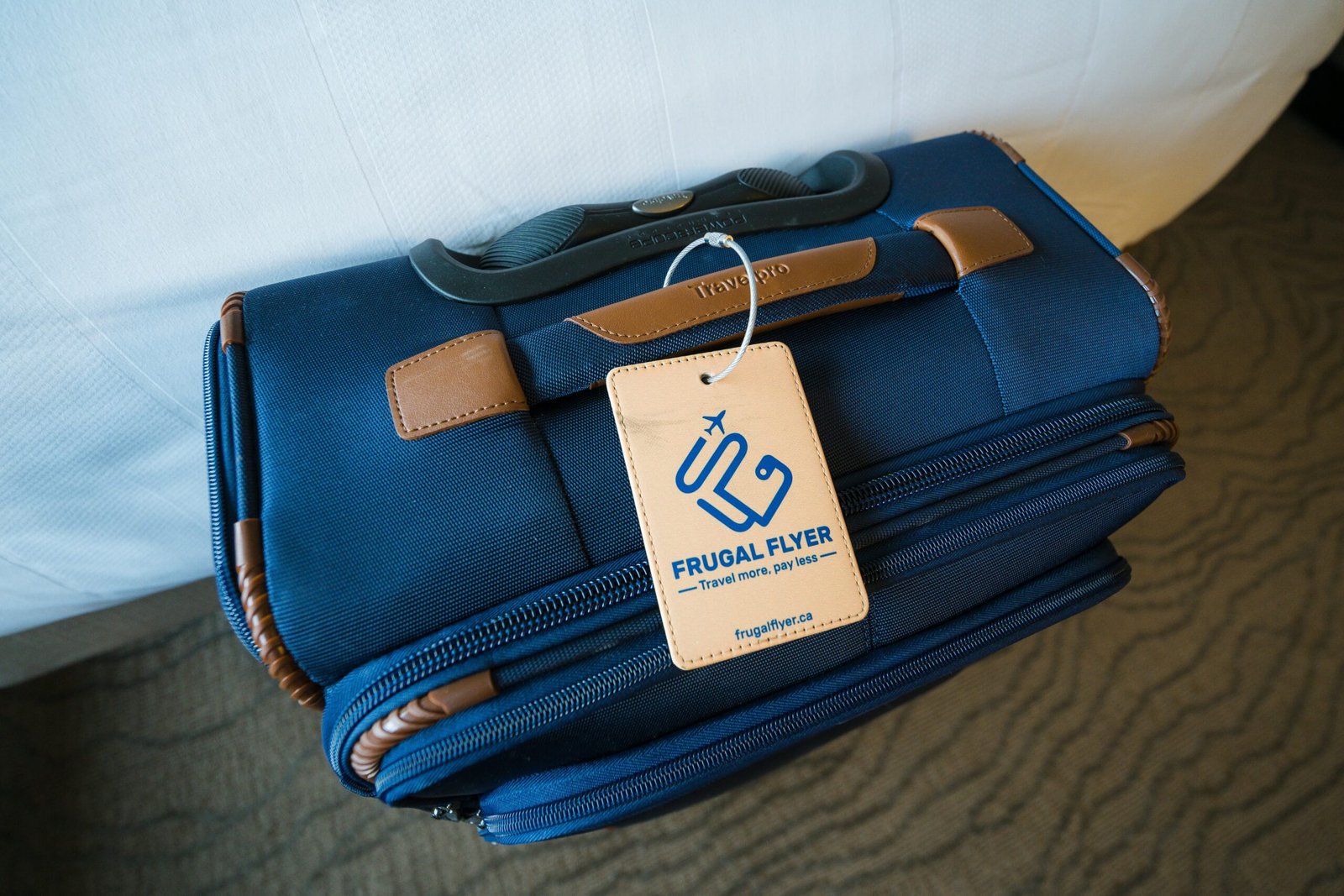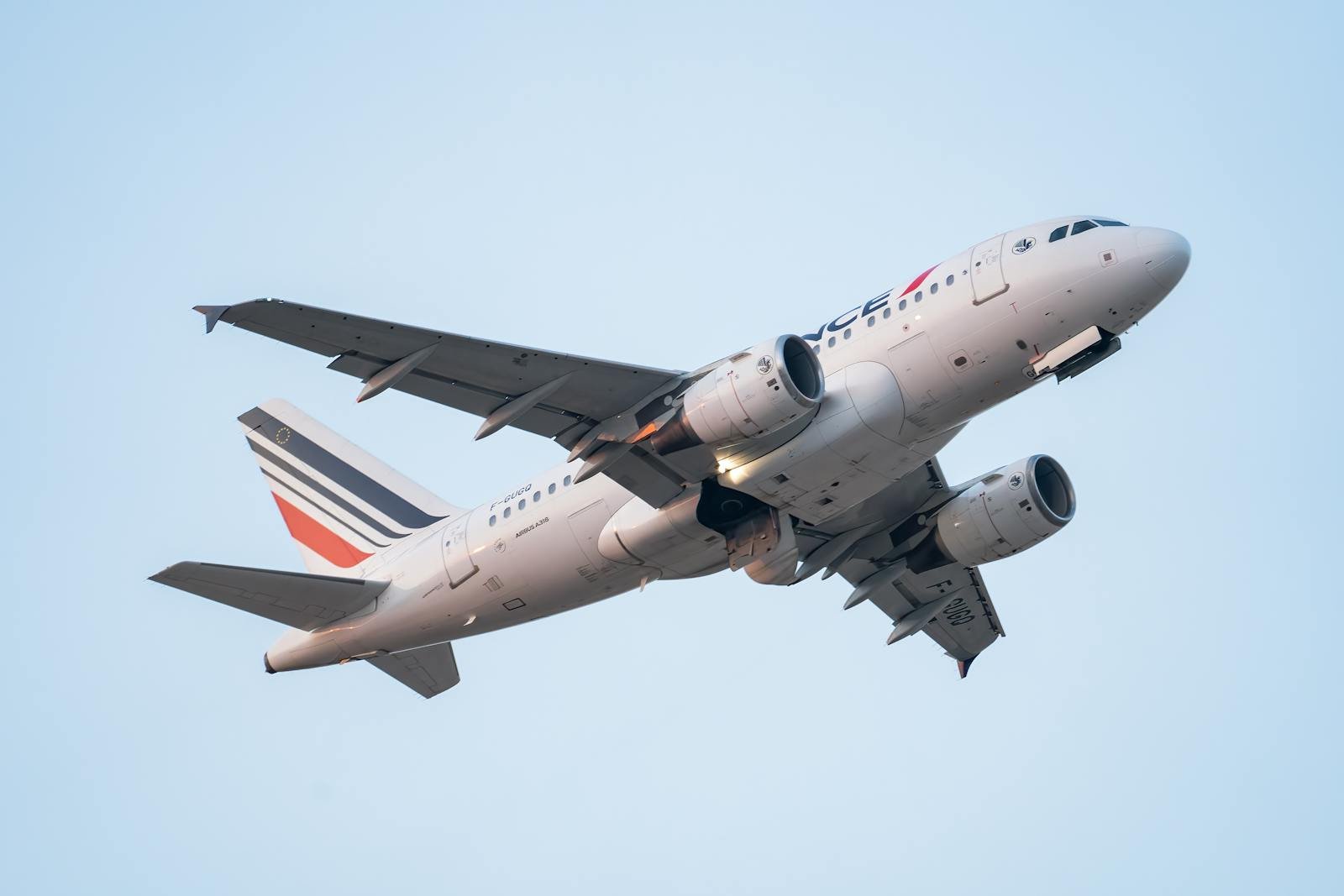
Introduction to Budget Travel
Budget travel has emerged as a significant trend among individuals eager to explore the world without incurring overwhelming expenses. As the travel industry evolves, the desire to experience diverse cultures and breathtaking landscapes has led more people to seek ways to travel affordably. With financial constraints often serving as a barrier to exploration, embracing budget travel can ultimately unlock a multitude of opportunities for wanderlust seekers.
At its core, budget travel emphasizes the importance of planning and prioritizing expenditures. This approach allows travelers to allocate their resources effectively, ensuring that they can enjoy meaningful experiences without compromising their financial stability. Given the rising costs associated with airfares, accommodations, and activities, understanding how to navigate travel expenses is essential in today’s economy.
One of the primary reasons for adopting a budget-conscious mindset is the financial freedom it provides. Balancing the desire to travel with economic realities can lead to improved financial literacy and better spending habits. Not only do travelers learn to appreciate value for money, but they also cultivate a sense of responsibility regarding their expenditures. This mindset can pave the way for numerous explorative adventures that may have previously seemed unattainable.
Throughout this blog post, we will delve into various budget travel hacks that can facilitate cost-effective journeys. By employing these strategies, travelers can significantly reduce their expenses while still enjoying fulfilling vacations. As the discussion unfolds, it will become evident that with a little creativity and planning, it is indeed possible to travel extensively without exceeding financial limits. The following sections will present practical tips aimed at empowering individuals to embark on their adventures with confidence and assurance of financial prudence.
Hack 1: Be Flexible with Travel Dates
One of the most effective strategies for maximizing savings during travel is maintaining flexibility in your travel dates. Many travelers often overlook the financial benefits associated with traveling during off-peak seasons, when demand is generally lower. This period not only brings down flight prices but also offers reduced accommodation rates, allowing for significant savings. It is crucial to identify the peak and off-peak seasons for your intended destinations, as traveling just a few days before or after the peak can yield substantial discounts.
Utilizing fare comparison tools is an essential step in navigating the complex world of airline pricing. Websites and apps such as Google Flights, Skyscanner, or Kayak allow travelers to compare flight costs across various airlines. By entering a range of possible travel dates, these platforms can display the cheapest options available. Setting up price alerts can further enhance your ability to strike when prices drop, ensuring you never miss a deal.
Another valuable recommendation is to monitor flight prices over time. Airfares can fluctuate dramatically due to factors like demand, time of booking, and special promotions. Tracking pricing trends can empower travelers to make informed decisions about the optimal time to purchase their tickets. For best results, travelers should engage in proactive research to observe any patterns in price changes, making note of tendencies that can provide indications of when to book.
Ultimately, flexibility may just be the golden ticket for budget-conscious travelers. By adapting travel dates and employing various tools to keep an eye on shifting prices, individuals can substantially reduce their travel expenses. This proactive approach not only ensures you get the best possible deals but also enhances the overall travel experience by allowing exploration during less crowded times.
Hack 2: Use Alternative Airports
When planning a trip, one effective budget travel hack is considering alternative airports. Often, these smaller airports can yield substantial cost savings compared to major airline hubs. Flights operating from these alternative airports typically feature lower landing fees and operational costs. Consequently, airlines frequently pass these savings on to travelers, resulting in significantly cheaper flight tickets.
Moreover, travelers often overlook the potential of these less trafficked airports, leading to reduced competition and lower prices. This can make a notable difference in travel costs, particularly for domestic flights, where a budget-conscious traveler might find airfares that are tens or even hundreds of dollars cheaper than those flying into major international airports. To identify these hidden gems, utilizing flight comparison websites and flexible travel dates can greatly enhance your chances of finding great deals.
However, it is essential to consider the logistics associated with alternative airports. While the airfare may be lower, accessibility, transportation options, and travel times must be factored into your overall travel budget. Public transport or shuttle services from smaller airports might be limited, and rental car availability can fluctuate. Therefore, planning ahead is crucial to ensuring that the savings on airfare are not offset by increased transportation costs.
Additionally, some popular travel platforms allow users to set alerts specifically for alternative airports, making it easier to spot lower fares as they emerge. By keeping your options open and remaining aware of various flight routes, you can secure the best deals possible. This strategy not only saves money but expands travel opportunities, allowing you to reach various destinations without compromising your budget.
Hack 3: Sign Up for Price Alerts
In the realm of budget travel, price alerts represent a crucial strategy for savvy travelers intent on getting the best deals. These alerts, set up through various online tools and applications, notify users whenever there is a significant change in flight or accommodation prices. Monitoring these fluctuations helps budget-conscious individuals identify optimal times to book, ultimately saving them money in the long run.
Several platforms have emerged as invaluable resources for tracking travel prices. Websites and applications such as Google Flights, Skyscanner, and Hopper provide intuitive interfaces that allow users to easily set and customize their price alerts. Once set up, travelers receive instant notifications related to their desired routes or accommodations. This immediacy is vital, as it enables users to act quickly, often resulting in significant price reductions.
Moreover, many airlines and hotel chains offer their own loyalty programs that include exclusive price alerts. This additional layer can enrich the travelers’ experiences by presenting opportunities for additional savings or curated deals. Engaging with various price alert systems also allows travelers to gauge the pricing landscape, fostering an understanding of typical price ranges for tickets or stays. Consequently, individuals become better equipped to recognize genuine bargains from misleading offers.
However, there is a caveat to consider when utilizing price alerts: timing is often everything. When an alert indicates a price drop, it is essential for travelers to act with haste. Whether it is clicking “book” for that dream flight or securing a desirable hotel room, delays can result in missed opportunities, as prices can quickly rebound. By integrating price alerts into your travel planning routine, you enhance your chances of finding the best deals, reinforcing the benefits of a budget-minded approach.
Hack 4: Take Advantage of Travel Rewards Programs
When it comes to budget travel, utilizing travel rewards programs stands out as a strategic method to save significant amounts on future trips. These programs allow savvy travelers to earn points or miles, which can be redeemed for free flights, discounted accommodations, and various perks that enhance the travel experience. Understanding how to effectively navigate these programs can lead to substantial savings, making it crucial for travelers to be well-informed.
One of the essential steps in maximizing rewards benefits is selecting the right credit card tailored to travel rewards. Many financial institutions offer various credit card options that come with significant benefits, including sign-up bonuses, accelerated points for travel-related purchases, and complimentary travel insurance. When choosing a credit card, assess factors such as annual fees, interest rates, and the program’s compatible airlines or hotel chains. This assessment ensures you engage with a rewards program that aligns with your travel preferences.
In addition to credit cards, joining loyalty programs of airlines and hotels can enhance your ability to accumulate rewards. Many travel brands offer loyalty programs that provide exclusive member benefits, including bonus points on bookings, access to upgrades, and priority check-in. By consistently using the same airline or hotel chain, travelers increase their potential to earn points faster, allowing for quicker redemption for free flights or stays.
To maximize the chances of earning rewards, it is also advisable to consider everyday spending and travel-related purchases. From grocery shopping to gas stations, some credit cards allow users to earn points on a wide variety of expenses. Additionally, using rewards-eligible services, such as booking rental cars or travel insurance, can lead to accumulating points more swiftly, accelerating the timeline to reward redemption.
Hack 5: Consider House Sitting or Home Exchanges
Travelers seeking budget-friendly alternatives to traditional accommodations might find house sitting and home exchanges to be worthwhile options. These arrangements can substantially reduce lodging costs, allowing individuals to allocate their funds to experiences and activities instead. House sitting involves taking care of someone else’s home while they are away, whereas home exchanges allow travelers to swap homes temporarily, providing mutual benefits.
Several reputable platforms facilitate house sitting and home exchange programs, making it easier for travelers to connect with potential hosts. Websites such as TrustedHousesitters and HomeExchange.com offer extensive listings. These platforms often require users to create profiles and verify their credentials, which can enhance trust between parties. By joining such communities, travelers can not only secure free accommodation but also immerse themselves in the local culture and environment.
Finding suitable opportunities often involves thorough research and communication. It’s essential for travelers to define their travel preferences and set clear expectations. For example, consider location, duration of stay, and any necessary house care tasks, such as pet sitting or gardening. Reviewing past feedback from previous exchanges or sits can provide additional insights into what to expect. The personal touch of staying in a local’s home can also enrich the travel experience by offering a glimpse into everyday life in that particular area.
Moreover, making connections with hosts can lead to valuable local insights and recommendations that enhance the travel experience. Embracing house sitting or home exchanges not only helps in saving money but also fosters a sense of community between travelers and locals. Therefore, when planning future trips, considering these options can be an effective strategy for budget-conscious travelers looking to explore the world without overspending. While embracing these opportunities requires flexibility and trust, they can provide memorable and enriching experiences.
Hack 6: Eat like a Local
Traveling often leads to unexpected expenses, and dining out is typically one of the largest contributors to a travel budget. A strategic way to minimize these costs while simultaneously enriching the travel experience is by choosing to eat like a local. This approach not only saves money but also immerses travelers in the destination’s rich culinary culture.
To find affordable dining options, it is essential to conduct prior research. This can include searching online for local food blogs and reviews on platforms like Google Maps or Yelp. These resources often highlight hidden gems where locals prefer to dine, as opposed to typical tourist traps that often charge inflated prices. By opting for a restaurant frequented by residents, travelers can enjoy meals that are both authentic and budget-friendly.
Another avenue to explore is street food, a popular choice in many cultures worldwide. Street vendors often offer a variety of dishes at significantly lower prices than sit-down restaurants. Sampling local street food not only provides a taste of the authentic cuisine but also enhances the travel experience through unique interactions with vendors and fellow diners.
Shopping at local markets can further stretch the travel budget. Markets not only offer fresh produce and ingredients at lower prices but also provide an opportunity to prepare meals, particularly for travelers staying in accommodations with kitchen access. Local markets allow travelers to experience the community atmosphere and indulge in regional specialties, which can be prepared in a budget-conscious manner.
By embracing these practices—researching local eateries, savoring street food, and frequenting markets—travelers can significantly reduce their food expenses while enjoying a richer cultural experience. Eating like a local is indeed a valuable strategy for those seeking to maximize their travel experiences without overspending.
Hack 7: Public Transportation Over Taxis
When it comes to budget-friendly travel, opting for public transportation can significantly reduce expenses, allowing travelers to allocate funds towards more enriching experiences. Utilizing buses, trains, and subways not only serves as a cost-effective alternative to taxis and rideshare services but also offers unique opportunities to immerse oneself in the local culture.
First and foremost, public transportation systems in many cities are often well-developed, providing comprehensive coverage that connects various attractions, neighborhoods, and points of interest. By taking advantage of local transit, travelers can explore extensively without the burden of high taxi fares. For instance, many cities offer daily or weekly transit passes, which can be much cheaper than purchasing individual tickets for each journey. This investment allows for unlimited travel within a specified time frame, resulting in substantial savings for those planning to navigate the city frequently.
Additionally, researching local transportation options prior to your visit can enhance your travel experience. Many websites and mobile applications are dedicated to providing detailed information on public transit routes, schedules, and fares. Familiarizing oneself with these resources can lessen the anxiety of navigating unfamiliar territories and enable efficient trip planning. For example, Google Maps provides comprehensive transit directions, making it easier for travelers to find the most efficient routes to their destinations.
Furthermore, public transportation offers a glimpse into everyday life, providing the opportunity to interact with locals. Whether it is through striking up conversations with fellow commuters or observing the cultural practices of the region, traveling by bus or train enriches the overall travel experience. In essence, choosing public transportation over taxis not only yields financial benefits but also enhances cultural engagement.
Hack 8: Seek Out Free Activities and Attractions
When traveling on a budget, one of the most effective strategies to stretch your dollars is to seek out free activities and attractions available in the destinations you visit. Most cities and towns offer an array of free options for travelers, including public parks, cultural festivals, and local events that can enhance your travel experience without incurring extra costs. By prioritizing these engaging experiences, you can fully immerse yourself in the local culture while remaining fiscally responsible.
A great starting point for discovering free activities is to research local event calendars. Many cities maintain websites or social media pages dedicated to highlighting upcoming events, often featuring free concerts, art exhibitions, or community gatherings. Additionally, visitor bureaus frequently provide seasonal guides that can point travelers toward free attractions, including historical landmarks and outdoor markets. Exploring the local offerings will not only help you save money but also allow you to interact with residents and gain genuine insights into the culture.
Public parks and gardens should not be overlooked either. Many destinations boast beautiful green spaces that are perfect for relaxation, picnics, or leisurely strolls. Some parks offer free entry to botanical gardens or special events, such as outdoor movie nights in the summer. Similarly, numerous museums host free admission days or offer reduced prices during specific times of the week, presenting a wonderful opportunity to explore artistic and historical collections that would otherwise be cost-prohibitive.
Another excellent way to discover free entertainment is through online platforms such as Meetup and Eventbrite. These services cater to various interests and frequently list free events happening in your area. Engaging with local communities via these platforms can lead to unique experiences that are often overlooked by typical tourist guides. By taking the initiative to seek out these opportunities, you can elevate your travel experience and create memorable moments while adhering to your budgetary constraints.
Budgeting Apps and Tools
Traveling on a budget necessitates not just planning but also the diligent tracking of expenses. Utilizing budgeting apps and tools can significantly enhance your ability to manage travel costs efficiently. These applications serve as valuable companions, helping travelers systematically track their spending on various aspects such as transportation, accommodation, and food.
One prominent tool that many budget-conscious travelers turn to is Mint. This application offers comprehensive budgeting features that automatically sync with your bank accounts, allowing users to categorize their spending. The visual aids and alerts it provides help in ensuring you stay within your set budget. Furthermore, it allows you to set financial goals, which can be beneficial when saving up for your next adventure.
Another highly regarded option is YNAB (You Need A Budget). YNAB promotes a proactive approach to budgeting by encouraging users to assign every dollar a job. This can be an effective strategy for travelers who want to allocate funds specifically for different expenses during their trips, ensuring that they have money set aside for transportation or dining without overspending.
For those who prefer simplicity, Wally offers an intuitive interface to help users log their expenses quickly. This app allows individual entries for daily expenses, making it easier to keep track of costs in real time. Wally also offers a feature to set saving goals and track progress, which can be particularly useful for travelers aiming to stick to a strict budget.
By utilizing these budgeting apps and tools, travelers can gain a clearer understanding of their finances during their adventures. Ensuring that every dollar spent is monitored can lead to better decision-making and enhance the overall travel experience. By making conscious choices about spending, budget travelers can maximize their journeys while maintaining financial stability.








